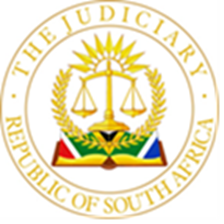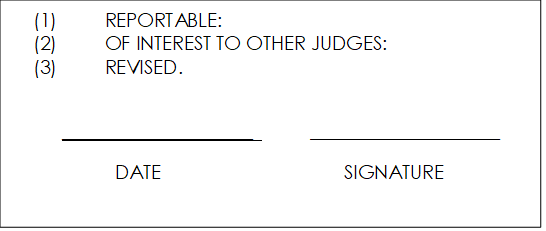
IN THE HIGH COURT OF SOUTH AFRICA
GAUTENG DIVISION, PRETORIA

CASE NO: 2022/016179
In the matter between:
ROAD ACCIDENT FUND First Applicant
MINISTER OF TRANSPORT Second Applicant
and
DISCOVERY HEALTH (PTY) LIMITED Respondent
Intervening Party
JUDGMENT
MBONGWE, J
INTRODUCTION
[1] There are in essence two opposed applications before this court – the main being the application for leave to appeal the whole of the judgment and order of this court handed down on 26 October 2022. In terms of the judgment and orders, this court set aside and interdicted the implementation of an internal directive issued by the Acting Chief Claims Officer of the Road Accident Fund (‘’the RAF’’) on 12 August 2022 for the rejection of claimants’ claims for past medical expenses in circumstances where such expenses had not been paid by the claimants, but by their medical aid schemes. The second application is brought by the victorious party in the initial urgent application, Discovery Health, which now seeks an order in terms of Section 18(3) of the Superior Court Act 10 0f 2013 the effect of which will be that the execution of the order of 26 October 2022 be allowed and not suspended pending the determination of the appeal, in the event that leave to appeal is granted to the RAF.
APPLICATION FOR LEAVE TO APPEAL
[2] Section 17 of the Superior Courts Act 10 of 2013 sets out the requirements to be met by the applicant for leave to appeal being that:
2.1 the court may grant leave to appeal if it is convinced that:
(a) the appeal would have a reasonable prospect of success; or
(b) there is some other compelling reason why the appeal should be heard, including the existence of conflicting decisions on the matter under consideration; or
(c) the decision on appeal will still have practical effect; and
(d) where the decision appealed against does not dispose of all the issues in the case, and the appeal would lead to a just and prompt resolution of all the issues between the parties.
[3] In Zuma v Democratic Alliance [2021] ZASCA 39 (13 April 2021) the court held that the success of an application for leave to appeal depends on the prospect of the eventual success of the appeal itself. In The Mont Chevaux Trust v Tina Goosen and Others 2014 JDR 2325 LCC the court held that section 17(1)(a)(i) requires that there be a measure of certainty that another court will differ from the court whose judgment is sought to be appealed against before leave to appeal is granted.
“An applicant for leave to appeal must convince the court on proper grounds that there is a reasonable prospect or realistic chance of success on appeal. A mere possibility of success, an arguable case or one that is not hopeless, is not enough. There must be sound, rational basis to conclude that there is a reasonable prospect of success on appeal.’’ - See: MEC for Health, Eastern Cape v Mkhitha and Another [2016] ZASCA 176 (25 November 2016).
THE GIST OF APPLICANTS’ CASE
[4] The gravamen of the applicants’ case for seeking leave to appeal is succinctly stated in para 3.3 and, under the heading “The way in which medical schemes operate” of the applicants’ heads of argument. An important consideration by the court against whose judgment and order is sought to be appealed against are the provisions of section 17 referred to above. I deem it necessary to quote verbatim the premise of the applicants’ application for leave to appeal in the paras referred to:
“3.3 The rationale behind the directive is that the claimant has not incurred any expenses relating to the past medical expenses claimed because the expenses were incurred by the claimant’s medical scheme.
3.4 The court erred in its judgment because it did not have due regard to the way in which medical schemes operate and why they make the payments which they make. It is necessary that this issue be considered by another court.
3.5 The directive is based on how the medical schemes operate in terms of the Medical Schemes Act 131 of1998 (‘’the MSA’’). In fact, the point of departure in this case is the way in which medical schemes operate in terms of the MSA.”
THE LAW
[5] The Road Accident Fund is a creature of statute. As such the RAF functions and exercises its powers within the confines of the provisions of the Road Accident Fund Act 56 of 996, as amended (‘’the Act’’). Section 3 of the Act provides:
“3. The object of the Fund shall be the payment of compensation in accordance with this Act for loss or damage wrongfully caused by the driving of motor vehicles.”
ANALYSIS OF THE GROUNDS OF APPEAL
[6] The strength of applicant’s application for leave to appeal is not founded on the provisions of the RAF Act, but on an extraneous legislative instrument, the Medical Schemes Act 131 of 1998 and how medical schemes operate. At para 3.5 of the first applicant’s heads of arguments it is stated in relation to the impugned directive:
“3.5 The directive is based on how the medical schemes operate in terms of the Medical Schemes Act 131 of1998 (‘’the MSA’’). In fact, the point of departure in this case is the way in which medical schemes operate in terms of the MSA.”
[7] Considering the defined parameters of the functions and powers of the RAF stated in para 5, supra, the directive, based on a measure extraneous to the provisions of the RAF Act, namely, the MSA and how medical schemes operate, is ultra vires. Its purported exoneration of the RAF from its liability to compensate the victim of a vehicle accident fully, that is, including for past medical expenses incurred by the schemes as a result of the negligent driving of a motor vehicle, is ultra vires and unlawful.
[8] The provisions of the MSA and “how medical schemes operate” cannot be legitimate sources for seeking leave to appeal in this case. The dispute between the parties concerns the provisions of the Road Accidents Fund Act, 56 of 1996, as amended and the obligations the Act imposes on the first applicant. The first applicant’s assertion that this court erred, in determining the issues in dispute, by not having had regard to how the medical schemes operate in terms of the Medical Schemes Act 131 of1998. The alleged error of this court and the point of departure suggested by the first applicant, as a grounds of appeal, are plainly non-starters.
[9] The Medical Schemes Act is intended to do no more than to govern the relationship between the medical schemes and their members, on the one side, and the medical suppliers of the member, on the other.
[10] The contract between a medical scheme and its member offers guarantee of payment by the schemes to the medical suppliers of the member. There is no claim for reimburse laying with the scheme against its member.
[11] The emergence of a third party in the relationship between the scheme and its member through wrongful conduct /negligent driving that causes the hospitalisation and medical treatment of the scheme’s member, and thereby occasioning the incurring of medical expenses by the scheme, entitles the scheme’s member to a claim for any loss suffered, in terms of the RAF Act. It is undesirable nor is it justified to give the words ‘any loss suffered’ a restrictive meaning so as to exclude past medical expenses incurred by the scheme, or any other party for that matter, on behalf of its member/ victim of a motor vehicle accident. Such expenses would not have been incurred, but for the wrongful conduct the RAF Act obliges the RAF to pay for.
[12] Just like their members, the medical schemes are entitled to be placed in the position they would be in had the motor vehicle accident not occurred. That the schemes claim through their members via subrogation should be of no concern to the RAF if the relevant invoices and, if necessary, the member’s written undertaking to pay the recovered past medical expenses to the scheme is furnished to the RAF. The first applicant, ironically, concedes in this regard. At para 3.8 of its answering affidavit to Discovery’s section 18(3) application the Chief Executive Officer of the RAF states:
“It is clear from the Fund’s email aforesaid that the directive does not apply in circumstances where the Fund has been provided ‘’with the agreements between the claimant and medical aid that confirms that the medical expenses need to be paid to the medical aid.’’ [own emphasis].
[13] The above concession not only contradicts the contents of the directive as quoted in the main judgment which directs that all claims for past medical expenses where such expenses had been paid by the medical scheme must be rejected, but also negates the basis of the resistance to the initial urgent application by Discovery. It contradicts the RAF’s argument both in the main and the present application for leave to appeal.
CONCLUSION
[14] The application for leave to appeal the judgment and order setting aside the directive must consequently fail, not only on the ground stated in the preceding paragraph, but also on the ground that the directive, admittedly informed by the provisions of the Medical Schemes Act and “how medical schemes operate”, is ultra vires and, therefore, unlawful.
[15] The first applicant’s case does not meet the requirements of section 17 nor does it fall within any of the categories set out in the sub-sections of section 17 of Act 10 of 2013 stated in para [2], above. Leave to appeal is, consequently, refused.
THE SECTION 18(3) APPLICATION
[16] Though argued in this court, is not necessary in the circumstances to consider the application in terms of section 18(3) of Act 10 of 2013 nor the merits, or lack thereof, in the opposition thereto, save to pronounce on the costs.
COSTS
[17] The general rule that costs follow the outcome of the matter is applicable in this matter.
ORDER
[18] Resulting from the findings and conclusion in this judgment the following order is made:
1. The application for leave to appeal is dismissed.
2. The applicant is ordered to pay the costs which costs shall include the costs consequent upon the employment of two counsel.
__________________________
M P N MBONGWE
JUDGE OF THE HIGH COURT
GAUTENG DIVISION, PRETORIA.
APPEARANCES
For the Applicant : Adv Kennedy Tsatsawane SC
Adv Realeboga Tshetlo
Instructed by : Malatji and Co Attorneys
For the Respondent : Adv Wim Trengrove SC
Adv Nick Ferreira
Instructed by ENS Africa
JUDGMENT ELECTRONICALLY TRANSMITTED TO THE PARTIES ON JANUARY 2023.
4
Cited documents 4
Judgment 2
- MEC for Health, Eastern Cape v Mkhitha and Another (1221 of 2015) [2016] ZASCA 176 (25 November 2016)
- Zuma v Democratic Alliance and Economic Freedom Fighters (1028/2019) [2021] ZASCA 39 (13 April 2021)
